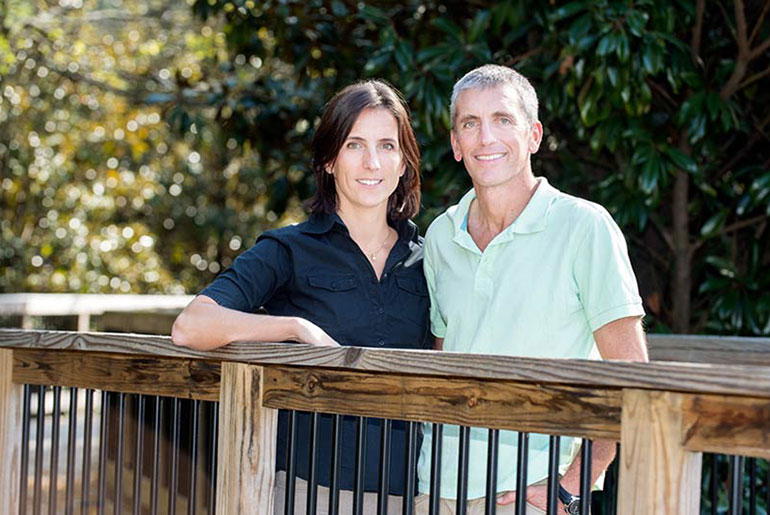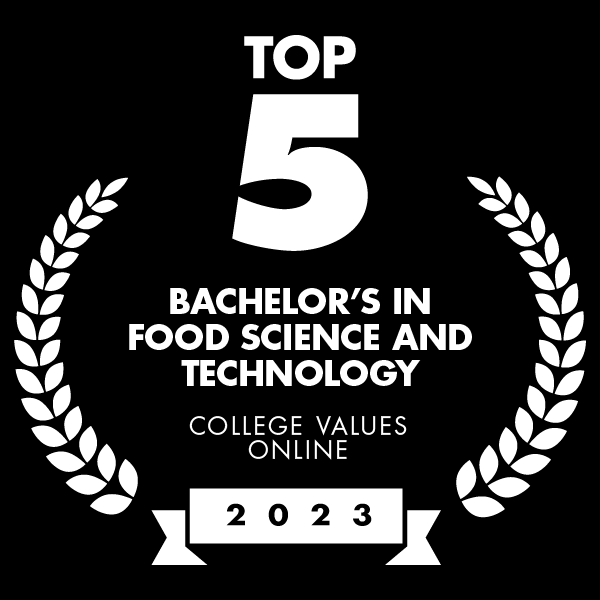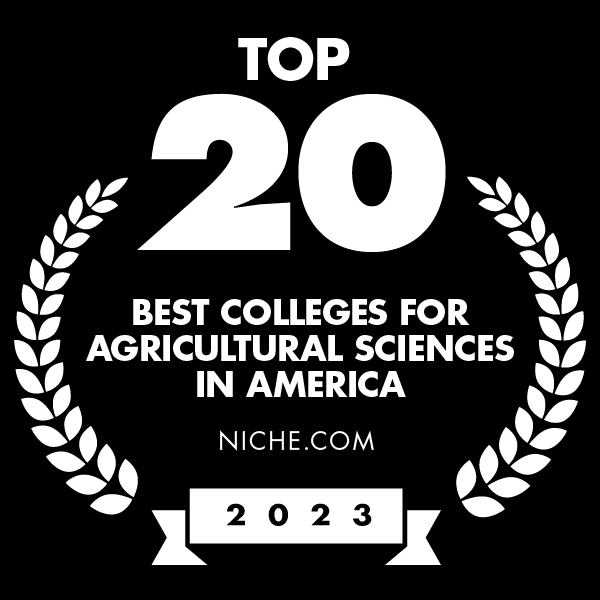The information presented on this page may be dated. It may refer to situations which have changed or people who are no longer affiliated with the university. It is archived as part of Mississippi State University's history.
Our People: Federico Hoffmann & Florencia Meyer
Author: Vanessa Beeson

Florencia Meyer and Federico Hoffman (Photo by Beth Wynn)
One might think Uruguay is a world away from Mississippi State. While in many ways Montevideo, Uruguay, 5,000 miles to the south, is vastly different from Starkville, Federico Hoffmann said the local community reminds him a little of home.
"We come from a laid-back place," the MSU biochemistry and molecular biology assistant professor said. "Starkville is also laid-back. It's a welcoming, family-friendly campus and community."
Hoffmann and his wife, Florencia Meyer, also a biochemistry assistant professor, have traversed the southern and northern hemispheres—dotting the map in such places as Texas, Nebraska and Brazil before planting roots in the Magnolia State.
Both Hoffmann and Meyer are in the Department of Biochemistry, Molecular Biology, Entomology and Plant Pathology in the College of Agriculture and Life Sciences. They each conduct research in the university's Mississippi Agricultural and Forestry Experiment Station.
At the Universidad de la Repýblica Uruguay where the couple met, Hoffmann earned his bachelor's in biology and master's in zoology, while Meyer earned her bachelor's in biochemistry. They moved to Texas Tech University where Hoffmann earned a doctoral degree in zoology and Meyer earned a master's in microbiology. From there, they went to the University of Nebraska-Lincoln, where Meyer earned her doctoral degree in virology. After that, they traveled to Curitiba, Brazil, for post-doctoral research at the Instituto Carlos Chagas, a research institute affiliated with Brazilís equivalent to the National Institutes of Health. They had returned to the University of Nebraska-Lincoln to conduct post-doctoral work when each applied for faculty positions at Mississippi State.
Collaborators in life and work, Hoffmann and Meyer balance teaching and research appointments while raising three children.
Meyer teaches two forensics courses and a biochemistry class.
"The classes are fun, interactive experiences and all of the students are motivated and excited," Meyer said.
In her research, Meyer is studying how bovine herpesvirus-1 influences bovine respiratory disease. Her work is economically relevant; the virus costs the U.S. cattle industry $500 million annually in production loss.
Meyer's mother, a veterinarian working in the field of animal viruses, helped ignite Meyer's own passion and enthusiasm for the subject.
Hoffmann, who currently teaches a class focused on professional science writing, said curiosity drove his interests. He said studying bioinformatics and computational biology can give us insight into the past.
"In my field, I study DNA. Essentially, DNA is like a historical record because if you compare different animals that have diverged at different times, you can travel back in time," Hoffmann said.
The love of science spans three generations, from Meyer's mother to the couple's children. Their eldest and middle sons were recently part of a team that placed first in the Mississippi BEST, a robotics competition for Mississippi high school and middle-school students. While their eldest son is interested in computer science and their middle son wants to be an aerospace engineer, their daughter loves the family's other passion—tennis.
The family plays tennis recreationally and attends the games of both the men's and women's tennis teams at Mississippi State. The family also likes to spend quality time at the Sam D. Hamilton Noxubee Wildlife Refuge, where they enjoy canoeing, hiking and wildlife-watching.
Date: 2016-11-07
Biochemistry, Molecular Biology, Entomology and Plant Pathology




